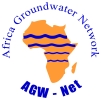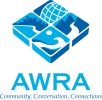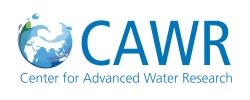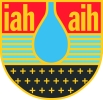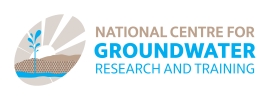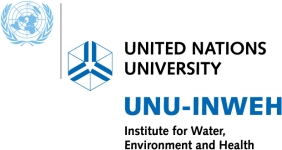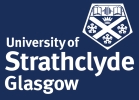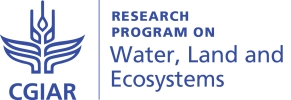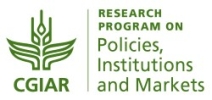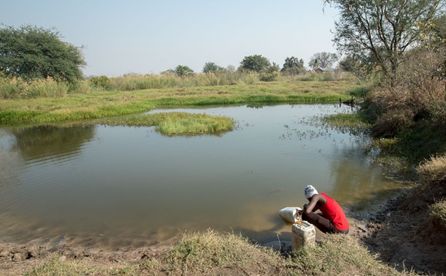
Man fetching water in Simalaha Community Conservancy, Zambia (photo: Peace Parks Foundation).
The five Partner States of the Kavango Zambezi Transfrontier Conservation Area (KAZA TFCA) – Angola, Botswana, Namibia, Zambia and Zimbabwe – have joined forces to better manage their groundwater resources.
The KAZA-GROW project is implemented by the International Water Management Institute (IWMI) in partnership with the KAZA TFCA Secretariat, supported by Peace Parks Foundation. The project is funded by the United States Agency for International Development (USAID) under the Resilient Waters Program for Southern Africa.
Ecosystems have become fragile as a result of climate change and other pressures from economic development and population growth. The KAZA TFCA is no different. It is an expanse the size of Germany and Austria combined, and covers large interconnected protected areas. The area is also a magnet for tourists as well as being home to local traditional communities, herds of wildlife, including the largest contiguous population of African elephants in the world, freshwater landscapes, and huge biodiversity and ecosystems. The area is also well known for its iconic inland Okavango Delta.
The KAZA TFCA was formally established in 2011, mandated by the five Partner States, with a mission to sustainably manage the Kavango Zambezi eco-region through best conservation and tourism models, and harmonization of policies, strategies and practices for the socioeconomic well-being of the communities in and around the eco-region.
Dr. Nyambe, Executive Director, KAZA TFCA Secretariat, has been central in bringing together joint efforts to maintain and enhance the co-benefits of these areas. Issues of water insecurity for communities and wildlife, due to climate change and longer drought spells, increasingly pop up on his busy agenda. Freshwater habitats are becoming more fragmented, freshwater species are on the decline, and shifts in water quality affect habitats.
“In 2018, the Conservation Working Group of KAZA TFCA, on behalf of the Partner States, directed the Secretariat to pay particular attention to the development and management of water resources in KAZA TFCA. There has been a number of developments since then, one being the signing of a memorandum of understanding with OKACOM – the Permanent Okavango River Basin Water Commission responsible for overseeing one of the two river basins sharing the KAZA TFCA. Another development was a key multi-stakeholder workshop that was held in Kasane, Botswana, in January 2019,” said Nyambe.
Speaking at the virtual inception workshop for the KAZA-GROW project in February 2021, hosted by IWMI, Dr. Nyambe said, “One of the priorities discussed at the workshop held in January 2019 was the need to focus on an understanding of the risks to groundwater resources. We are actually operating in a watercourse system and cannot just focus on surface water.”
Research shows that Partner States sharing the KAZA TFCA are undergoing rapid economic development and significant population growth, especially in upstream countries such as Angola that has an annual population growth rate of 2.7%.
Dr. Karen G. Villholth, Principal Researcher and Coordinator – Groundwater, IWMI, said, “At least five transboundary aquifers (TBAs) have been identified in the KAZA TFCA. These are deeper and larger water-bearing permeable rock or unconsolidated geological formations underlying and shared between two or more states. Relatively little is known about them, even though they may form the future backbone of water supplies.”
Villholth also stated that the KAZA-GROW project will enhance the knowledge base and decision support tools on groundwater resources of the KAZA TFCA through a joint and interdisciplinary Transboundary Diagnostic Analysis, including identifying hot spot cross-border areas for sustainable groundwater development to enhance the resilience of small communities and wildlife. Finally, the project will support policy development through the drafting of a KAZA TFCA groundwater management framework.
Transboundary cooperation on water resources management in the region is governed by the Revised Protocol on Shared Watercourses of the Southern African Development Community (SADC) and by the two river basin organizations of OKACOM and the Zambezi Watercourse Commission (ZAMCOM).
Prof. Andrew Nambota, Regional Manager, Peace Parks Foundation, said, “We are working towards, among other things, the development of TFCAs by reestablishing ecological connectivity, protecting keystone species, professionally co-managing protected areas, strengthening the resilience of communities living in TFCA landscapes, and enabling the financial sustainability of conservation areas. Central to all of this is sustainable water resources development, management and use. The focus of the KAZA-GROW project will be on shared groundwater resources in the Kwando River Wildlife Dispersal Area (WDA).”
“Groundwater was recognized as a significant source of water for people and wildlife alike in all WDAs, including the Kwando River WDA, during the development of the KAZA TFCA Master Integrated Development Plan and the portfolio of projects and activities prioritized for implementation under Phase III with support from the German development bank KfW. It was further noted that the inevitability of climate change and its adverse effects will leave indelible reverberations on these resources with abiding implications for people and wildlife in the aforementioned areas. As such, stakeholders agreed that a decision support system is required to ensure sustainable provision and long-term management of groundwater resources. This feasibility study is, thus, timely and aligned with the strategies of the KAZA TFCA. As Peace Parks Foundation, we are very pleased to be part of this initiative,” said Prof. Nambota.
Speaking on behalf of the USAID Resilient Waters Program, Mr. Graham Paul, Environment, Energy and Climate Change Specialist, USAID, said, “We believe that this KAZA-GROW project will be instrumental in advancing sustainable conjunctive water use. Unique to this project is its initiative to address two main regional challenges. First, current groundwater use of most countries remains minimal and is, for example, 5-10% of the national sustainable yield. This suggests that groundwater is an untapped natural resource that has significant potential to increase resilience across the region by supporting livelihoods and enabling water security for humans and wildlife. This is particularly important taking into consideration the challenges posed by climate change and the variability we are experiencing in the region. Second, considering that current groundwater governance systems are state-centered and are operating in isolation, there is limited integration across various levels and there is inadequate management capacity.”
The inception workshop provided an opportunity to reemphasize the growing importance of groundwater in the SADC region, as indicated by the SADC Groundwater Management Institute (SADC-GMI) and OKACOM, as well as Partner States. OKACOM recently commissioned and completed their first basin-wide groundwater assessment. Partner States increasingly integrate their attention to water resources and conservation through coordinating the departments focusing on these aspects.
The inception workshop was concluded with encouraging feedback and applauded as a successful stepping-stone towards a more holistic and integrated approach to groundwater management and conservation planning. Such planning would ensure that the management of water resources, ecosystems and biodiversity is considered together and involves informed decisions among key partners across upstream and downstream transboundary water systems. “We are happy to know that we are going to be in a position to scale up groundwater governance using the lessons learned and experiences from this project. As far as we are concerned, we consider this to be a pilot project on groundwater and transboundary aquifers in the KAZA TFCA,” concluded Dr. Nyambe.
Learn more about the KAZA-GROW project
Sign up for GRIPP news and updates
Sign up for the Call to Action on Global Groundwater Sustainability







